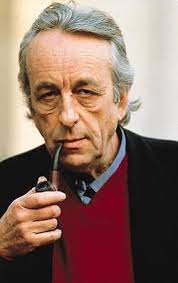Althusser, Louis

Bio: (1918-1990) Algerian-French anthropologist, sociologist, and philosopher. Louis Althusser was born in Algeria but later moved to Marseille with his family. He enrolled in the École normale supérieure in Paris, but went to war, was captured by the Germans, and spent the war in captivity. After the war, he finished his studies and in 1948 he became a lecturer at the École normale supérieure. During the war, Althusser became close to communism and in 1948 became a member of the Communist Party in France. In the period from 1948 to 1980, he taught and wrote numerous works, mostly on Marx and his work, and became one of the most famous critical interpreters of Marx and the most influential structural Marxists in the world. In 1980, Althusser suffered a nervous breakdown, killed his wife, and ended up in a mental institution. From then until today, his work become even more controversial and disputed.
Until 1965, Althusser was not known in wider scientific circles, but two of his most important books were published that year: For Marx (trans. 1969) and Reading Capital (trans. 1970) (the former book was written in cooperation with his students Balibar and Roger Establet and others). These books established him as the most important structural Marxist. In the book For Marx, Althusser presents the periodization of Marx's works and divides them into: 1) the works of the young Marx (1840-1844); 2) works of the break (1845); 3) works of maturation (1845-1857); 4) works of maturity (1857-1883). According to Althusser, Marx was never a Hegelian (Georg Wilhelm Friedrich Hegel), but his philosophy was most influenced by Kant (Immanuel Kant) and Fichte (Johann Gottlieb Fichte), and then Feuerbach (Ludwig Feuerbach). That’s why Althusser concluded that the thesis of Hegelianism of young Marx is just a myth. Althusser believed that Marx's acquaintance with developed capitalism in England conditioned his intellectual evolution. Althusser introduces several new concepts, the key to understanding Marx. By practice, he means the whole process of transforming matter into one product, and that transformation is done by human labor with the help of tools; by theory, it implies a specific form of practice that itself belongs to the complex unity of social practice of a particular society.
Althusser believes that Marx came to his scientific theory at the cost of accepting a radical critique of human philosophy and that starting in 1845, Marx radically stopped using historical and political theories that were based on the human essence. Althusser believes that we should talk about Marx's theoretical antihumanism. Although in his later works, especially in the work Essays in Self-Criticism (1976, in French 1974), he admits some of his misconceptions or so-called deviations, he does not deviate significantly from his basic position from the past.
Althusser, also, developed a theory of ideology, in which ideology functions “without history”, by providing people the framework to establish lived relationships within the social reality in which they are located. Ideology locates subjects in the system of relationships that is necessary for the maintenance of unequal class relations. Ideology molds individual identities that are functional to the propagation of the capitalist system of exploitation. Hence, ideology is not a philosophical illusion but a lived practice of everyday life. “Ideological state apparatuses” (legal system, family, school, church, communications, political parties) are predominantly responsible for those practices because they are supported by, and give support to those practices, so to ensure undisturbed functioning of the capitalist system.
Theoretical approaches
Marxism, StructuralMain works
Pour Marx (1965a);
Lire de Capital (1965b);
Lénine et la philosophie (1969);
Eléments d'autocritique (1974a);
Philosophie et philosophie spontanée des savants (1974b);
Positions (1976);
Sur la Reproduction (1995).
Works translated into English :
Essays in Self-Criticism (1976, in French 1974b);
Lenin and Philosophy and Other Essays (2001, in French 1969);
“Ideology and Ideological State Apparatuses (Notes Towards an Investigation)”, in Lenin and Philosophy and Other Essays (2001);
For Marx / Pour Marx (2006, in French 1965a);
Philosophy of the Encounter: Later Writings 1978-1987 (2006);
Politics and History: Montesquieu, Rousseau, Marx (Radical Thinkers) (2007);
Philosophy and the Spontaneous Philosophy of the Scientists (2012, in French 1974b);
On the Reproduction of Capitalism. Ideology and Ideological State Apparatuses (2014, in French 1995);
Reading Capital (2016, in French 1965b);
How to Be a Marxist in Philosophy (2017);
On Ideology (2020);
What is to be Done? (2020);
History and Imperialism: Writings 1963-1986 (2020).

